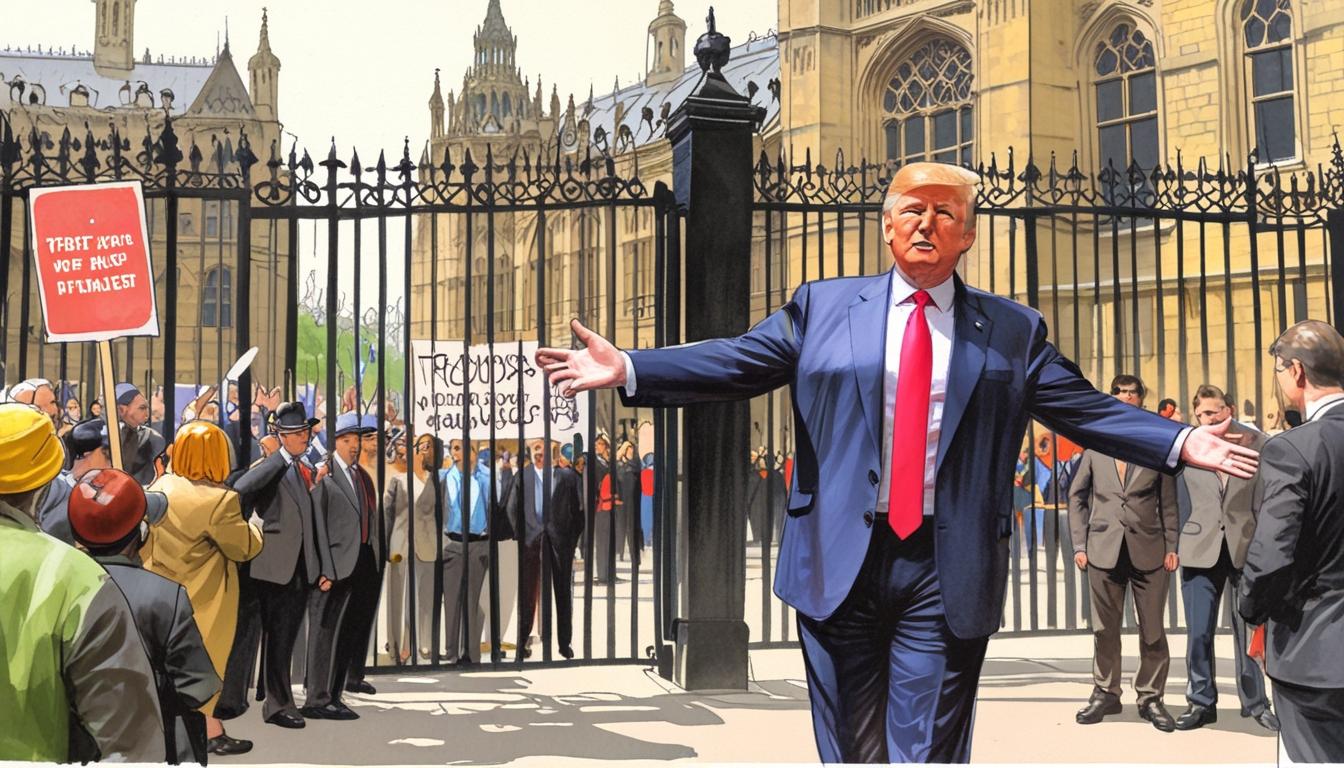Donald Trump's potential address to the UK Parliament appears to be moving forward as opposition from Members of Parliament (MPs) seems to have diminished in intensity. This comes following an invitation extended by Labour leader Keir Starmer during a visit to the White House in February. Starmer's outreach is part of a broader diplomatic strategy aimed at strengthening ties between the UK and the United States.
While some MPs and peers have campaigned against Trump's planned speech to both Houses, collecting tens of thousands of signatures on a petition opposing the idea, the momentum behind this resistance appears to be waning. A motion in the Commons calling for a ban on Trump's address has garnered only 19 endorsements since being introduced a week ago. This contrasts sharply with previous similar motions in 2017 and 2019, which received significantly greater support from 206 and 106 MPs, respectively, including current ministers like David Lammy.
A senior MP stated that the movement to halt the speech does not seem to be making progress, and it has been noted that Speaker of the House of Commons Lindsay Hoyle is unlikely to reject a request for the address unless there is widespread discontent among MPs. The approval for such an address must come from the Commons Speaker, the Lord Speaker, and the Lord Great Chamberlain, represented by Black Rod, all of whom play a vital role as the 'gatekeepers' of Parliament.
Keir Starmer's invitation comes amid expectations that Mr Trump’s visit could be scheduled for September, as the former president referred to King Charles III as his "friend" and indicated that a formal date might soon be set.
Concerns about Trump’s address have been amplified following his contentious encounters with Ukrainian President Volodymyr Zelensky in the Oval Office. Additionally, Trump's administration has made statements regarding the annexation of Canada and Greenland, challenged European free speech norms, and imposed tariffs that have stirred confusion in global trade relations.
Despite this, some politicians have openly defended the idea of Trump speaking to Parliament. Former Cabinet Minister Julian Smith remarked to MailOnline that seeking to prevent Trump from addressing MPs is a "joke," highlighting the significance of engaging directly with a leader who has won a historic election and plays a pivotal role in the UK-US relationship.
A petition on Change.uk opposing Trump's address has amassed over 46,000 signatures, and recent YouGov research found that 63 per cent of the British public oppose the visit. Nonetheless, as of now, no formal request has been submitted to the Houses of Parliament for Trump to deliver his address. A Parliament spokesman confirmed that any request would undergo the usual process of consideration by the Speakers of both Houses.
During his previous term in office, Trump made official visits to the UK, meeting with Queen Elizabeth II at both Windsor Castle and Buckingham Palace. The evolving dynamics surrounding this potential address continue to capture public attention and political debate, reflecting the complex nature of contemporary international relations.
Source: Noah Wire Services
